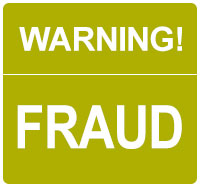Equipment purchase scam using the names Peter Seagrott and Palfingermarine B.V
Date First Reported: January 2023
Primary Name Associated: Peter Seagrott
Description of Potential Fraud:

A few Ontario lawyers have notified us that they received an email from the purported Peter Seagrott looking to retain them with regards to making a large commercial purchase (an oil rig).
This appears to be a bad cheque scam (with a real company likely being impersonated) that presents as legal matter requiring the assistance of a lawyer. In this scam lawyers will be duped into wiring real funds from their trust accounts after depositing a fake cheque received as payment from the purchaser (who is part of the fraud).
See our Confirmed Fraud Page for more of an explanation of how these frauds work and to see other names associated with it. Our Cybercrime and Bad Cheque Scams Fraud Fact Sheet lists the red flags of a bogus legal matter that is really a fraud.
Here is the an email sent to the lawyer:
From: Peter Seagrott [email protected]
Subject: Do You Handle P&S Agreement?
Date: January 12, 2023 at 09:30:57 EST
To: undisclosed-recipients:;
Reply-To: [email protected]
—
Attn: My name is Peter Seagrott. I got your contact through a state Attorney Directory. The reason for getting in touch with you is that we are currently looking for an attorney in your state to help close a purchase of an oil rig. Our company is based out of United States and we need a local law firm to help draft us a purchase and sale agreement.
Please let me know if this is something your firm can take up, if not then a referral will be appreciated.
Thanks,
Peter Seagrott
Sales Manager
Palfingermarine B.V
Havenstraat 18, 3115 HD
Schiedam, Netherlands
How to Handle a Real or Suspected Fraud
If you have been targeted by any of these frauds, please forward any of the emails and supporting documents that you have received to [email protected]. We use this information for the warnings we post on AvoidAClaim. We do not disclose the names of firms that have provided us with information.
Ontario Lawyers - Call LAWPRO
If you are an Ontario lawyer acting on a matter that you suspect might be a fraud, call LAWPRO at 1-800-410-1013 (416-598-5899). One of our Fraud Team members will talk you through the common fraud scenarios we are seeing and help you spot red flags that may indicate you are being duped. This will help you ask appropriate questions of your client to determine if the matter is legitimate or not. If the matter you are acting on turns out to be a fraud, we will work with you to prevent the fraud and minimize potential claims costs.
What can you do to help put a stop to the fraud attempt?
You can simply stop replying to the fraudster’s emails or inform them that you suspect fraud and will not act on the matter. You can report the fraudsters’ email addresses to the email hosting company. If you have a fraudulent cheque you can destroy it or send it to the fraud department of the financial institution it is drawn upon. In Canada, you can report the fraud to the Canadian Anti-Fraud Centre.
We are often asked if it is worthwhile to report the fraud attempt to the police in the hopes of helping catch the fraudsters. You can certainly report the fraud to your local or federal law enforcement agencies, but unfortunately it is often difficult, expensive and time consuming for them to attempt to shut down these online fraud perpetrators (though there are some successes).
What if the fraud has been successful?
If you have been successfully duped, please immediately notify LAWPRO as there may be a claim against you. See the LAWPRO website for instructions on how to report a claim.
For more immediate updates on fraud and claims prevention, subscribe to the email or RSS feed updates from LAWPRO’s AvoidAClaim blog.
Fraud Fact Sheet
More fraud prevention information and resources are available on the practicePRO Fraud page, including the Fraud Fact Sheet, a handy reference for lawyers and law firm staff that describes the common frauds and the red flags that can help identify them. To proactively prevent trust account shortfalls and malpractice claims, LAWPRO encourages firms to teach their lawyers and staff about fraud and how to recognize fraud attempts.

Leave a Reply